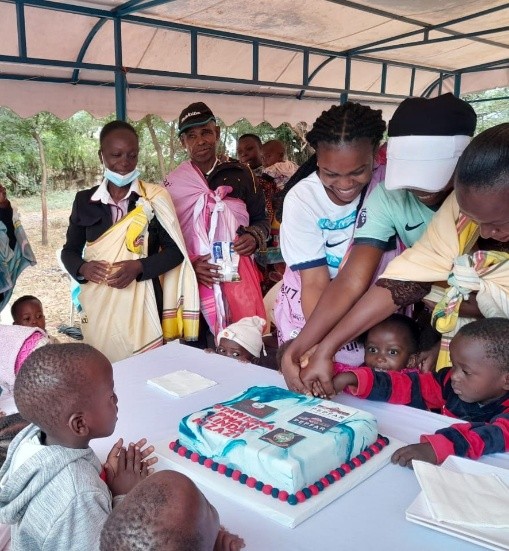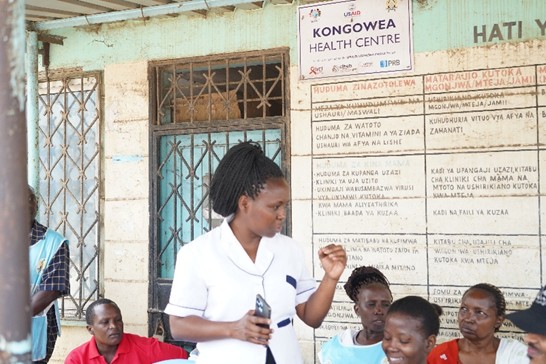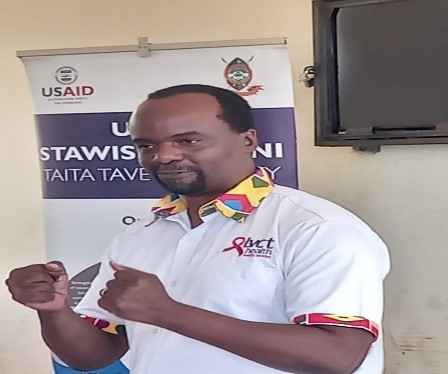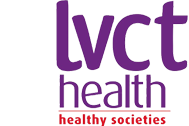
Eight years ago, in the bustling neighborhood of Mtopanga,Mombasa County, Jane a mother of two (not her real name) strolled through Soweto Grounds with her friends, excited about attending a health outreach event offering free medical services.
Among the offerings was HIV testing services, which she saw as just another routine check. “I have always taken a test before, She said, beaming with confidence.
“ I am healthy, look at me.I trust my partner, she said, encouraging her friends to also to also get tested.
But a simple conversation with the nurse changed everything when she received a diagnosis that shook her to the core: she was HIV-positive-—an important piece of information that she had not anticipated.
The walk home felt heavy and long coupled by a mixture of shock, uncertainty, and a desire to understand what this would mean for her future and that of her family.
”I was shocked. The diagnosis was devastating at first, especially seeing how people living with HIV often face discrimination and isolation even from the closet family members. ” Jane.
From Silence to Strength
At home, Jane kept herself away from her family and friends. The discovery left her in shock, with deep fear of rejection and stigma, choosing to hide her HIV status from everyone including her husband.
However, after a tiring period of visiting different clinics and retesting her results, Jane realized she couldn’t keep it a secret forever. She gathered her courage and shared the news with her husband.
Together, they sought treatment, starting on life saving antiretroviral therapy and committing to a new way of life. But life’s challenges persisted. In 2018, she made the difficult decision to leave her husband and move in with her sister in another county, seeking refuge from stigma. Despite her hopes for support, she faced discrimination even in her sister’s home—her sister refusing her participation in household chores, fearing she might infect the family.
A New Beginning: Jane’s Journey and Triumph
Determined to rebuild her life, Jane returned home and took on small jobs, such as selling Mahamri—(famous triangular buns commonly enjoyed as breakfast among coastal communities)—to support her children.
Her primary goal was to keep them in school and ensure they had food and shelter. However, she could not ignore the emptiness left by their father’s absence, prompting her to reconcile with him.
They moved back together, trying to create a semblance of normalcy.
With renewed focus, Jane committed herself to taking her medication diligently and making life better for her family, who were now her greatest motivation.
A few months later, Jane discovered she was pregnant. Her joy was tempered by her husband’s opposition; constantly reminding her of the risk of infecting the unborn baby. Despite his fears, Jane refused to consider abortion, committed to giving her child a chance to life.
Faced with the difficult situation, the couple sought medical assistance from Kongowea Health centre, one of the LVCT Health supported facility that offers comprehensive care and treatment services through PEPFAR supported program.
Now expecting her third child, Jane is more confident that they will have a healthy baby following the timely medical intervention and guidance they received from the facility. It is during the various antenatal care clinics, she learned about Prevention of Mother-to-Child Transmission (PMTCT) interventions. This crucial knowledge not only made her aware that she could give birth to an HIV-negative child but also experience the intimate bond of breastfeeding without transmitting the virus.
“With support from this program, I am now able to live a healthy life, but also give birth to and nurtured my child without transmitting the virus. I an now fully confident that my baby will be born HIV-negative”,says Jane
Becoming a Mentor Mother
Eleven months after giving birth, Jane now offers words of encouragement to other women, guiding them through the journey of having a healthy baby after an HIV diagnosis.
Today, she speaks with immense pride about her four-year-old daughter, whom she attributes to the significant impact of the USAID Stawisha Pwani project.
Through the initiative, LVCT Health implements community and facility-based interventions to support Prevention of Mother-to-Child Transmission (PMTCT). From the first antenatal clinic visit and throughout pregnancy, labor, and breastfeeding, the project provides a range of services for women of reproductive age—whether living with HIV or at risk—to maintain their health and prevent their infants from acquiring the virus.
Jane says joining the mentor mother program has restored her self-esteem and confidence.
“I don’t want other women to go through what I did,” she states. “I share my story to counsel them. Thanks to the PMTCT services, I have an HIV-free child. I advise pregnant women to adhere to their medications and exclusive breastfeeding to prevent HIV transmission to their babies.
Since 2021, Kongowea Health Centre, supported by USAID Stawisha Pwani, has achieved a remarkable milestone towards preventing mother-to-child HIV transmissions among women enrolled in its PMTCT program.
Ending Pediatric AIDS.
The Kenyan Government, in partnership with various stakeholders in the health sector, has committed to eliminating mother-to-child transmission (PMTCT) of HIV, syphilis, and hepatitis B, and to ending pediatric AIDS.
Through the USAID Stawisha Pwani project, funded by the President’s Emergency Plan for AIDS Relief (PEPFAR), LVCT Health is implementing an integrated and comprehensive continuum of care. This approach aims to ensure that mothers like Jane in Kenya’s coastal counties stay healthy and that, should they become pregnant in the future, these interventions will prevent many infants from acquiring HIV.
Morine Ondara, Nursing Officer In-charge, attributes this success to a comprehensive approach that includes dedicated staff, early and repeated HIV testing, and the immediate initiation of life-saving Antiretroviral Therapy (ART). She notes that a stigma-free environment, strong community engagement, and personalized care have been crucial in saving lives. Additionally, she notes that regular viral load monitoring ensures the effectiveness of treatment.

Dr. Patrick Oyaro, the Chief of Party for the PEPFAR-supported project, highlights that more women attending antenatal care (ANC) are now being offered HIV testing and counseling. Those testing positive are enrolled in care and treatment—a significant milestone in addressing the global triple burden of mother-to-child transmission of HIV, syphilis, and hepatitis B

Using a quality improvement approach, the project has established mechanisms to prevent missed opportunities during ANC visits—such as testing, initiating antiretroviral therapy (ART), ensuring skilled birth attendance, accurate documentation, timely reporting, and postnatal follow-up.
According to Oyaro, who also serves as the Team Lead and Mentor for the four coastal counties on behalf of the National Global Alliance, these strategies are crucial to eliminating these infections.
Since its inception in 2021, the USAID Stawisha Pwani project has achieved significant progress in reducing MTCT rates of HIV/AIDS and other related illnesses.
In 2024, 98% of pregnant or breastfeeding women living with HIV enrolled in project-supported facilities were initiated on ART.
Currently, the project supports approximately 74 facilities providing PMTCT services and employs 19 mentor mothers across Mombasa County to guide pregnant and breastfeeding women throughout pregnancy, delivery, and postpartum, ensuring the birth of HIV-free babies.
Today, Jane’s success story is one of many. Mombasa County, like other supported counties in the coastal Kenya is gradually progressing towards the goal of zero new pediatric HIV infections—one HIV-negative baby at a time.
The lives transformed, hope restored, and healthier futures made possible stand as a lasting testament to our commitment to creating a world where every child can reach their full potential.
Story by Simon Templer Kodiaga and Festus Mutua (Reviewer)
